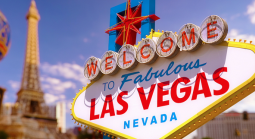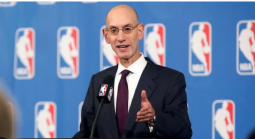US States Push More Gambling to Replaced Declining Taxes

(Bloomberg) -- Three U.S. states are pushing plans for video poker and slot machines as their legislators hope gambling income will compensate for declines in taxes.
Ohio lawmakers passed a budget last week that includes $933 million in projected revenue from 17,500 slot machines to be installed by May at horse-racing tracks statewide. Illinois legalized video poker in taverns to raise $300 million annually to support $31 billion in infrastructure improvements.
Pennsylvania would get a projected $550 million a year by legalizing video poker in bars, according to a bill awaiting consideration in the state's House of Representatives.
"As we learned in Ohio and Illinois, desperate times call for desperate measures," Brian McGill, an analyst at Philadelphia-based Janney Montgomery Scott LLC, said in a report today.
The Pennsylvania House has adopted a $29.1 billion budget for the fiscal year that started July 1, but the package includes no source of funding for $1.3 billion in college tuition assistance and higher education aid. Governor Ed Rendell and Democrats in the Legislature have identified video slots and table games as a potential source of $750 million a year for higher education and tuition aid.
"Given that the state is desperate for revenue, it is possible the bill could find more support going forward," McGill said. "We believe the situation in Pennsylvania is yet another example of a state that needs revenues and is considering turning to expanded gaming."
McGill changed his recommendation on International Game Technology, the world's biggest maker of slot machines, from neutral to buy last week, and said states could install a total of 55,000 new gaming machines by the end of 2011.
Ohio Race Tracks
Ohio plans to raise much of its gaming revenue through a $65 million registration fee from each of the seven race tracks scheduled to host slots. By legalizing video poker, the Pennsylvania measure would allow the state to keep 50 percent of the revenue from what the governor estimates are 17,000 machines operating illegally in hundreds of bars and social clubs.
U.S. state tax collections fell 11.7 percent in the first three months of this year compared with the same period in 2008, the largest drop in at least 46 years, according to the Rockefeller Institute of Government, the public policy research arm of the State University of New York.
The states collected $160 billion in income and sales taxes as well as other levies in the first quarter, down from $181.3 billion a year earlier, the Albany, New York-based institute said in a report released July 17.
Existing Sources Decline
Legislative hopes for new gaming comes as revenue from existing casinos and gambling equipment declines. It fell 11 percent last month in Illinois compared with a year earlier, Joseph Greff, a JPMorgan Chase & Co. analyst, said in a July 8 report. Adjusting for the temporary shutdown of a casino for fire damage, revenue declined by 3 percent, Greff said.
In New Jersey, income from Atlantic City casinos is down 15.3 percent through the first half of the year compared with 2008, the New Jersey Casino Control Commission said in a July 10 report.
That makes gaming an unreliable way to support public services, an anti-gambling critic says.
"It's going to blow up in their faces," said Rob Walgate, vice president of the American Policy Roundtable in Strongsville, Ohio. "Numbers are on the decline everywhere. It's just crazy."













